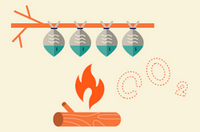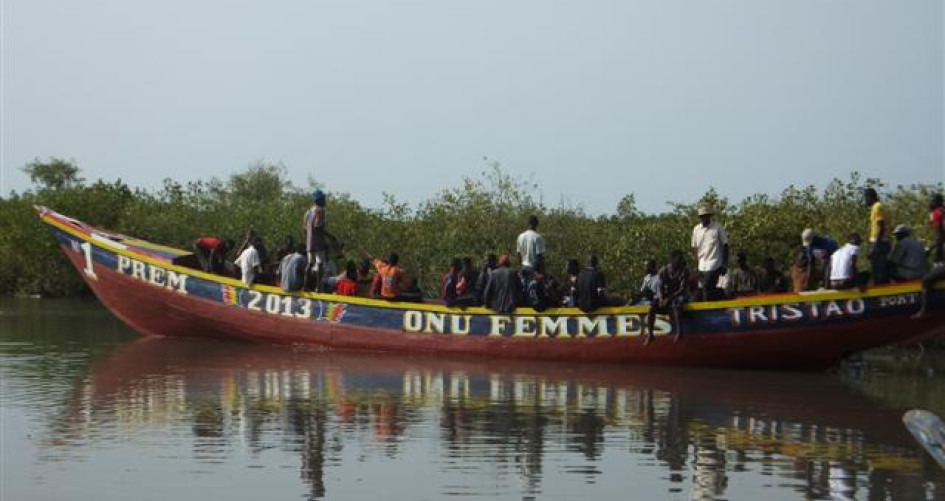A group of local women in Guinea were so concerned about the disappearing mangrove forest due to the overuse of wood for drying and smoking fish that they decided to band together to do something about it. Their solution was simple, successful and sustainable. The women created cooperatives on four island villages to stop the deforestation of mangrove wood. They now use non-polluting solar driers to dry and smoke the fish. And they plant fast-growing Moringa trees to reforest the area and create a sustainable source of income, by drying and selling the tree’s nutritionally dense leaves and water-purifying seeds.
Key facts:
- 160 women are directly involved in the initiative, which has created several association of women members in four island villages to manage their land and the program;
- 25,000 Moringa trees have been planted by the women across 20 hectares in North Guinea so far;
- Moringa leaves are packed with vitamins and nutrients, are high in protein and contain all of the amino acids needed to address malnutrition.
The problem

Deforestation is a serious issue in Guinea, where mangrove forests are cut down to burn wood to dry and smoke fish. Mangroves play an important role as nursery areas for fish and shrimp; moreover, they are important factors in stabilizing the shoreline. Mangroves contribute to climate change resilience by reducing the impacts of severe storms and cyclones. When they are cut down and burnt, not only do they destabilize the shoreline they also release greenhouse gas emissions.
The solution
Women living in the unique protected marine area in North of Guinea traditionally dry and smoke the fish caught by their husbands with mangrove wood. A group of concerned women decided to save the mangrove habitat by planting trees to generate income.
The women lead the creation of 4 cooperatives with 40 women members on 4 island villages to protect the mangrove and earn an income by planting Moringa trees and selling its byproducts. A total of 160 women learned how to cultivate, harvest and process the nutritionally-dense Moringa leaves and its water-purifying seeds into sellable products. More than 25,000 Moringa trees have been planted so far as a direct result of women’s leadership and action.
Helping the planet
The initiative stops the deforestation of mangrove wood as the women now use non-polluting solar driers to dry and smoke the fish. Four solar dryers have been built, saving up to 40 tonnes of CO2 per year.

The Moringa tree is a drought-resistant and fast-growing tree that rejuvenates soil. It has a high concentration of proteins and vitamins in its leaves. Women have learned how to produce fresh drinking water by using crushed Moringa seeds, which remove 96% of the bacteria from water. This also saves CO2 emissions as wood no longer needs to be burned to boil water.
Helping people
Women are now using solar driers to dry the Moringa leaves, fish and fruits. Women involved in the initiative said that eating the dried Moringa leaves improved their children’s health and nutrition. They have also ascertained that the Moringa seeds purify the water, which means no more water fetching or burning wood, no more water diseases and better health for all.
Not only are the women addressing climate change and reducing deforestation, they are also generating an income by selling the Moringa leaves and seeds.
Spillover effect
The Planting Trees to Save the Mangrove initiative is scalable and has the potential to grow in size and reach more beneficiaries. The solar driers can be manufactured in countries where electricity is scarce. Reforestation and reducing deforestation can be done everywhere on any size.
The initiative has the potential to be successfully implemented to other countries or regions as it is easy to plant and harvest Moringa trees in rural communities. Moringa is drought resistant and fast growing.




Images owned by the activity partners, all rights reserved

